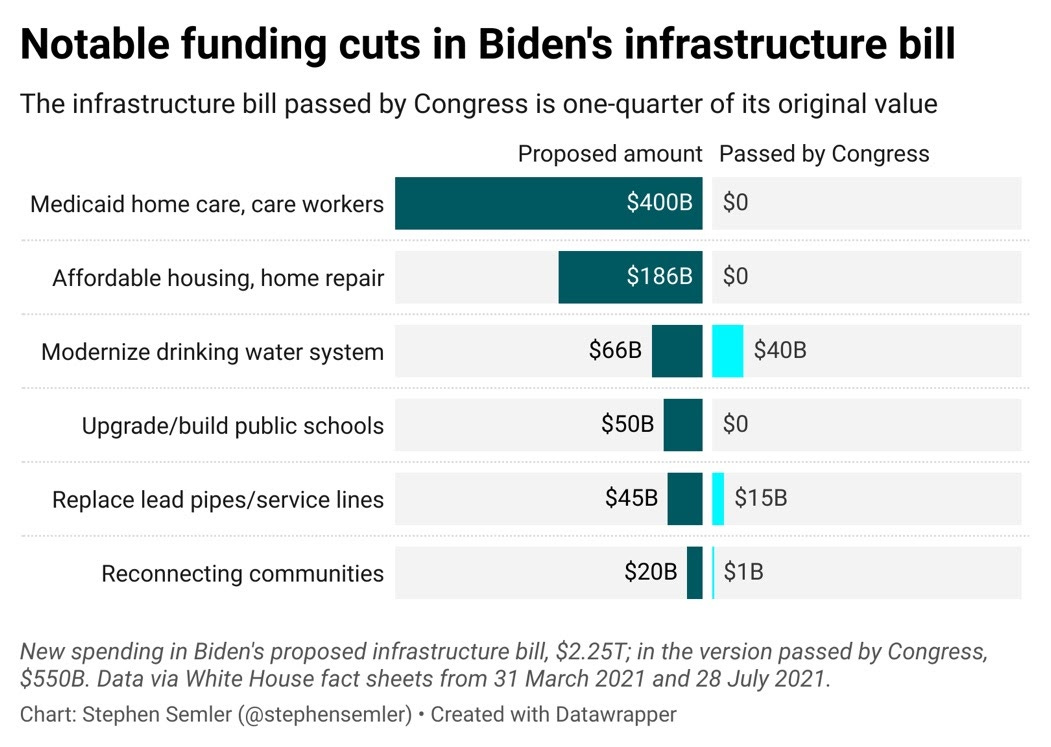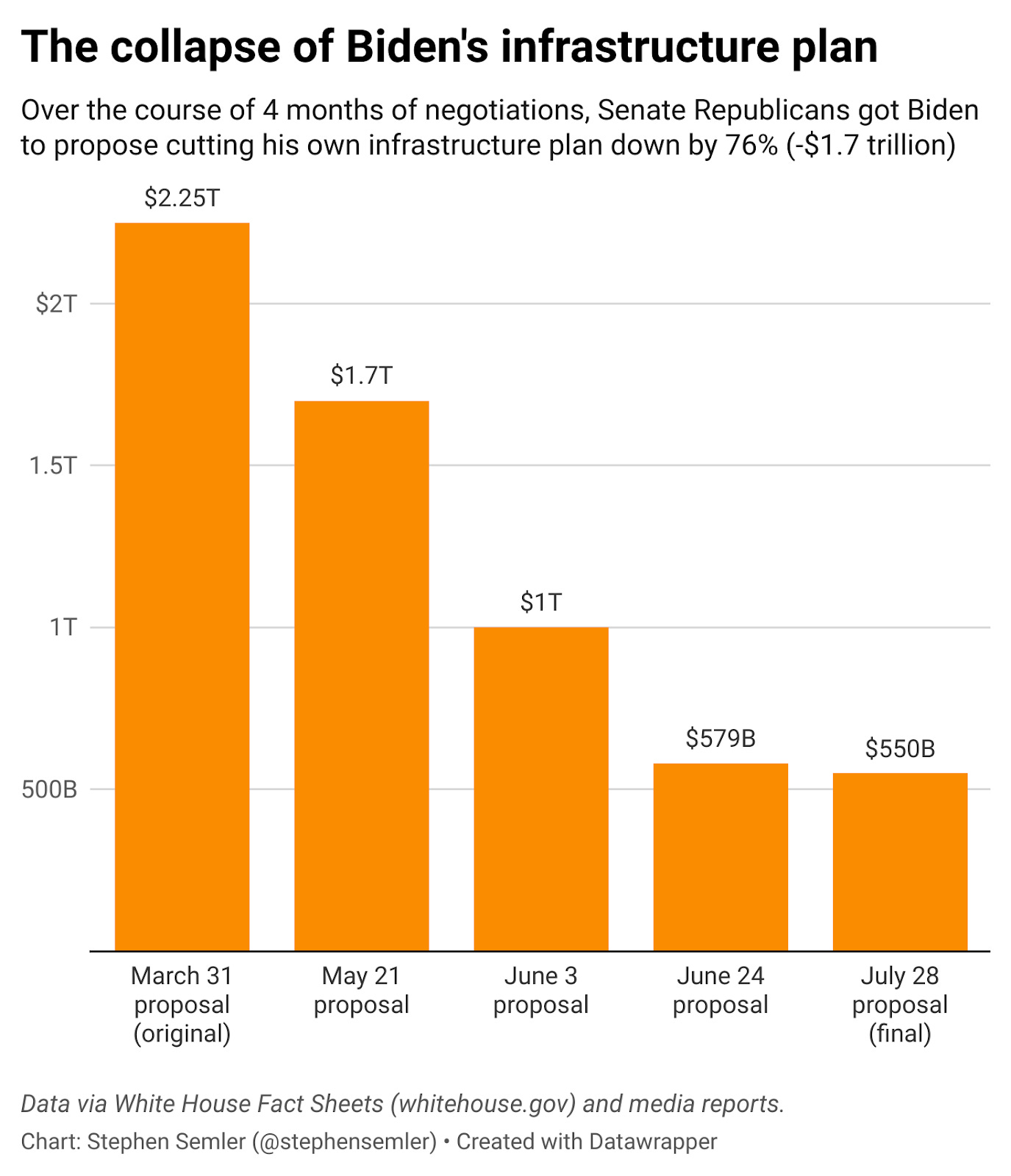The Progressive Caucus gives up its leverage
Speaking Security Newsletter | Advisory Note for Organizers and Candidates, n°131 | 9 November 2021
If you find these notes useful, you can support this newsletter here and SPRI, here. Sharing these newsletters also helps. Thank you!
Situation
The House passed Biden’s infrastructure bill on Friday. Now it goes to Biden’s desk for signature—the Senate passed the same version back in August.
Context
Some people on the left are understandably upset because the Congressional Progressive Caucus (CPC) abandoned its strategy of not voting for the infrastructure bill until the larger reconciliation bill was passed first (this conditionality became referred to as ‘holding the line’). Only six Democrats ended up holding the line on Friday: Reps. Bowman, Bush, Ocasio-Cortez, Omar, Pressley, Tlaib.
Conditioning the infrastructure bill on the passage of the reconciliation bill started when it became clear that the infrastructure bill would be a mere shell of what Democrats promised to voters.
On June 24, Biden endorsed a new version of his infrastructure bill that cut an already-pared down $1 trillion bill to $579 billion. On the same day, the Progressive Caucus released a statement saying they wouldn't vote for the infrastructure bill unless a decent reconciliation bill passed first. Far as I can tell that’s when the idea of holding the line started popping up in CPC press releases.
This strategy was necessary because the reconciliation bill would now have to serve as a catchall for the stuff Biden and Republicans agreed to throw out of the infrastructure bill—which included several CPC policy priorities—in addition to all the social programs Democrats had planned on putting in there originally.
Here’s where we’re at
At the time of writing, we have one infrastructure bill and zero reconciliation bills. There is a very real possibility it stays that way.
We were assured by Democratic leadership that the reconciliation bill would pass next week. But potential delays are already being reported.
Even if it passes in the House eventually, there is no guarantee that it passes in the Senate—that’s why the whole ‘hold the line’ thing started in the first place. Any leverage the CPC had to get Biden to actually make a concerted effort to force the Senate Democrats holdouts to fall in line dissipated when the House passed the infrastructure bill.
So what we’re left with is an infrastructure bill the CPC said wasn’t big enough to begin with and has since been cut down by over three-quarters; it started as a $2.25 trillion* bill and ended up as a $550 billion* bill. The timeline of the infrastructure bill’s collapse is visualized below.
*If you see higher numbers elsewhere, that includes money that was planned on being spent anyway through the (weirdly-funded) transportation budget—the figures above refer to ‘new spending’ and is the number you want to look at to quantify the investments the infrastructure bill actually makes.
Thanks for your time,
Stephen (@stephensemler; stephen@securityreform.org)
Find this note useful? Please consider becoming a supporter of SPRI. Unlike establishment think tanks, we rely exclusively on small donations.



